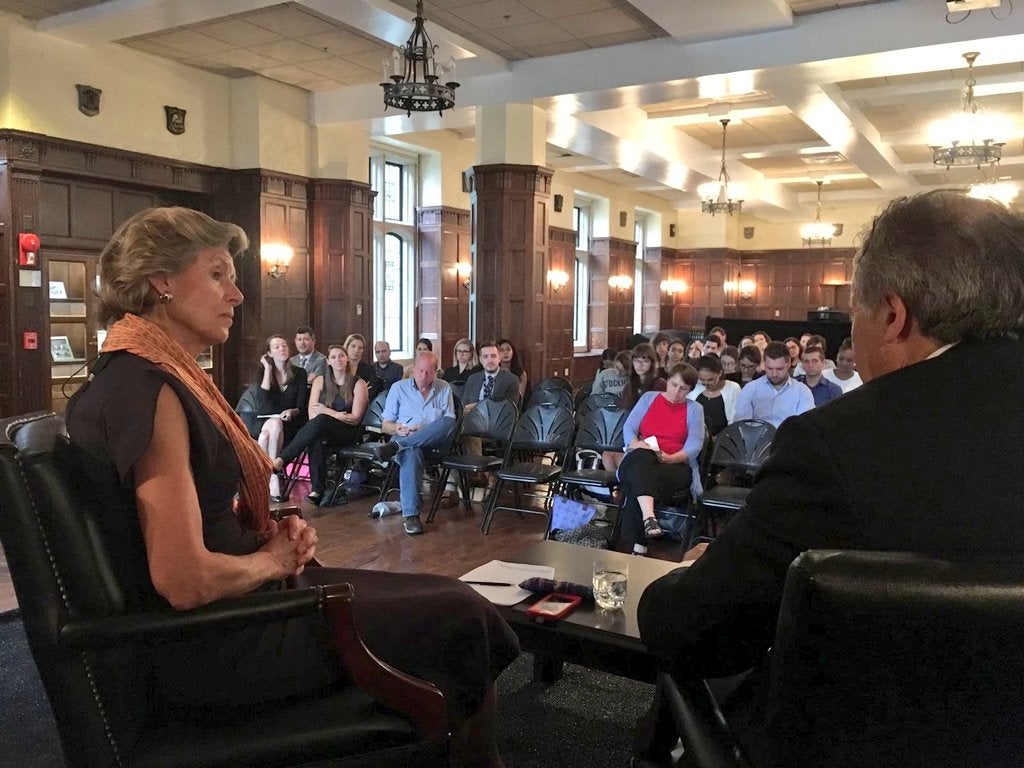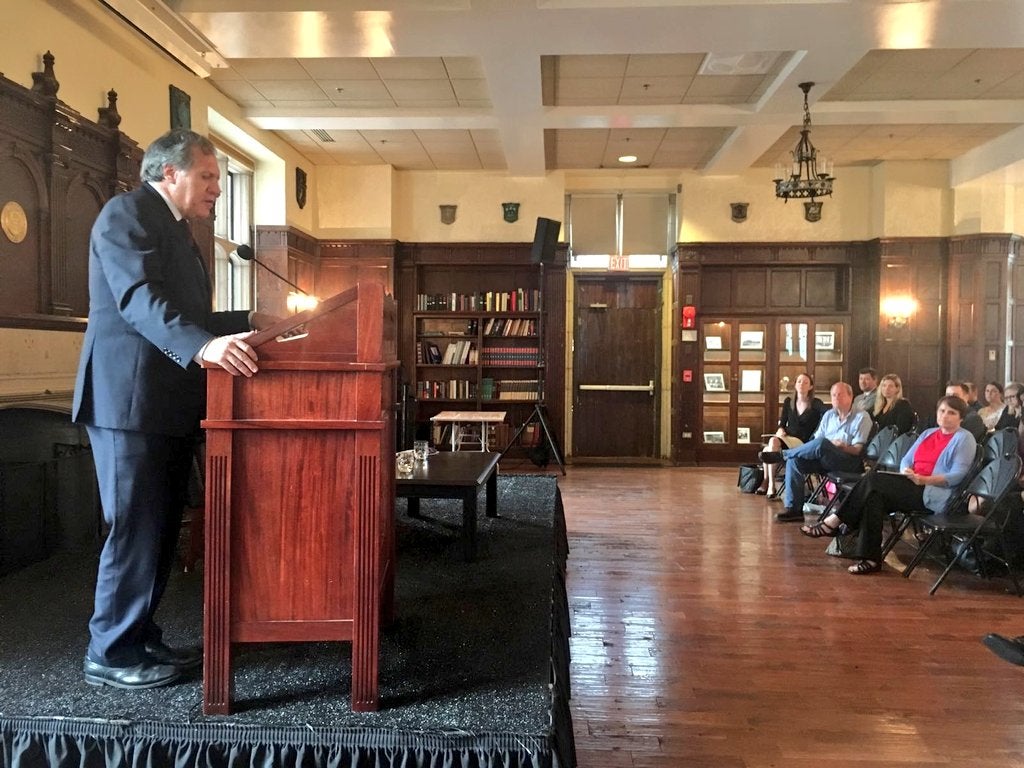
On Monday, September 19, the Institute for the Study of Diplomacy and Freedom House hosted a colloquium on Diplomacy and Human Rights featuring Luis Almagro, Secretary-General of the Organization of American States. Almagro is one of the 2016 recipients of Freedom House’s Mark Palmer Prize.
The event began with opening remarks from Ambassador Richard Norland (SFS’77), a U.S. State Department Senior Fellow at the Institute for the Study of Diplomacy and career diplomat who recently finished his term as U.S. Ambassador to Georgia.
“Diplomacy is no longer—if it ever was—the domain of government officials alone,” Norland said. “The partnership between diplomats and civil society, NGOs, journalists, academics, business people, community activists, and others outside government is an indispensable part of how nations engage with each other around the world. The transformational impact of that partnership can be decisive.”
“The Palmer Prize recognizes diplomats whose work has led the way in advancing civil society and promoting human rights,” Norland said.
Freedom House’s Mark Palmer Prize will be awarded to Almagro, as well as to Canadian Ambassador Deborah Lyons, Canada’s ambassador to Israel and former ambassador to Afghanistan, during the United Nations General Assembly in New York later this week.
Diana Villiers Negroponte, a Public Policy Fellow at the Wilson International Center for Scholars and expert on Latin America, introduced Secretary General Almagro and moderated the discussion including questions from the audience.
Before becoming Secretary-General of the OAS, Luis Almagro served as Minister of Foreign Affairs to President José Mujica of Uruguay. “He is a man with a passion for justice, a man with a generosity and commitment to democracy,” Negroponte said.
Secretary-General Almagro’s remarks covered a range of issues related to diplomacy, democracy, and human rights with a focus on the Americas.
“This hemisphere is unique,” Almagro said. “In the Americas, we have built a foundation with a common vision of what we believe in.”
“The Organization of American States is the foremost political forum of the hemisphere. This is a space where diplomacy, democracy, and human rights come together.”
Almagro emphasized that these values and commitments are enshrined and articulated in organization’s founding documents onto which all the OAS member states have chosen to sign. “These agreements make us unique,” Almagro said. “There is no other institution with the same commitment to human rights and democracy.”
Almagro emphasized that while these agreements are the basic tools of an organization like OAS, diplomacy is about more than words alone. “Diplomacy is more than language. The words we use create politics; they translate into action,” Almagro said.

“It’s not a game where the first movement is the last—it’s about building solutions, mounting pressure, creating conditions, working principles and values,” Almagro added. “When diplomacy is done seriously, like Mark Palmer did, it’s the hardest work in the world. You have to mix audacity with prudence, timing and feeling.”
Almagro stressed the importance that core principles of freedom, human rights, and democracy be attended to even when they are not politically convenient. “Fundamental freedoms, human rights, and democracy do not only exist when it is convenient or solely when they reinforce what we want. They must exist always,” Almagro said. “You have to care as much about your opponent’s right to express their view as you do about your own.”
Looking especially at Latin America, Almagro strongly expressed a belief in the importance of the citizen in an political system. “We need better citizens. We need to nurture them and to give them strong political character. It is the citizen that holds the most important position in democracy and should also be the most respected position in our political system,” Almagro said. “Those who are elected to represent the people are there as an instrument to channel the voice of the citizens into the decision making process of the state.”
Almagro also pointed to the many other components of democratic society that go well beyond elections. “A true democracy is about much more than the pieces of paper in a ballot box: it is about what happens after election day,” Almagro said.
“[True democracy] is freedom of expression, association, and assembly. It is an empowered citizen, a strong civil society, a vibrant media, an independent judiciary, a security apparatus that is trusted and held accountable to the people, and most importantly a tolerance of dissent.”
The event concluded with Dr. Sushma Mahyera Palmer, widow of the late Ambassador Mark Palmer, joining Secretary-General Almagro on stage.